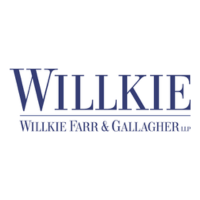

Head of legal | RSA Security



Christopher Mermigas
Head of legal | RSA Security
Team size: Nine
Major legal advisers: Tressler, Sidley Austin, Akerman, Danielson Legal and Ogletree Deakins
What has been the number one challenge that has impacted you over the past year?
The number one challenge over the past year has been reconciling the inverse relationship between compliance regulations and the economy. The number of compliance regulations continues to increase while the global economy continues to decline. Companies are required to do more with less, which can lead to shortcomings, inflated expenses, and significantly higher risk.
Since joining RSA, I have built up a self-motivated and cross-trained team and hired external vendors who can all balance doing more work with fewer resources. Across the board, my team and I understand the need for us to allocate our internal funds and resources diligently to advance the business. The days of the hardest working person succeeding are over. You have to work smarter, not harder.
Could you share an example of a time when you came up with an innovation that improved how your legal team works and did not come at a large expense?
Upon joining RSA, I learned that the legal team was vertically structured with a strict playbook mindset, and any deviation from the status quo was a time-consuming process for everyone involved. I eliminated the strict playbook and converted the department to a horizontal structure. I empowered the legal team to negotiate business and legal aspects of deals in collaboration with others. The legal team became more invested in the success of transactions, mitigating risks that were previously overlooked and closing deals faster in partnership with the sales team. This was a zero-expense initiative that generated millions of dollars of additional revenue for RSA.
We now get much more done – and more effectively – when we threw out the one-size-fits-all model and gave everyone the mandate and discretion to come up with individual solutions for individual problems. Empowering the legal team to get involved in the business has had some ancillary benefits, such as promoting innovation or recovering previously unknown revenue.
What would you say are the unique qualities required to be successful as an in-house lawyer in your industry?
My unique background includes expertise in IT security, government, enforcement, and law. As such, my knowledge and experience continuously contribute to my success as an in-house counsel in this evolving digital age. I proactively lead the legal department as a business partner rather than as a reactive legal adviser. This approach is similar to how RSA, as an organisation, views our security solutions as business drivers, not speed bumps.
Early involvement in daily business matters to appropriately guide and advise an agile, capable team is critical to being an effective in-house counsel. Ready accessibility and problem-solving are key. If the business team must hunt you down, the deal may already be lost. Being a business partner provides flexibility in high-value contract negotiations, which makes it possible to close deals more efficiently and effectively.
Lastly, an in-house counsel cannot be afraid to roll up their sleeves, get their hands dirty, and lead by example. I would not ask anyone on my team to do something I was not prepared to do myself. In fact, the key to keeping a legal team happy is having them work on tasks they enjoy and prioritising their needs. The head of the legal department must be able to handle a wide range of tasks, but that does not mean the rest of your team has to do everything. This is another reason why I have an externship program every semester, aimed at training the next generation of in-house counsels on what it means to be a digital age in-house counsel.
Head of legal | RSA Security